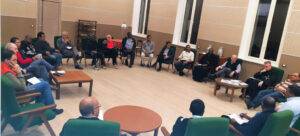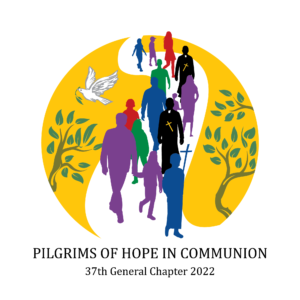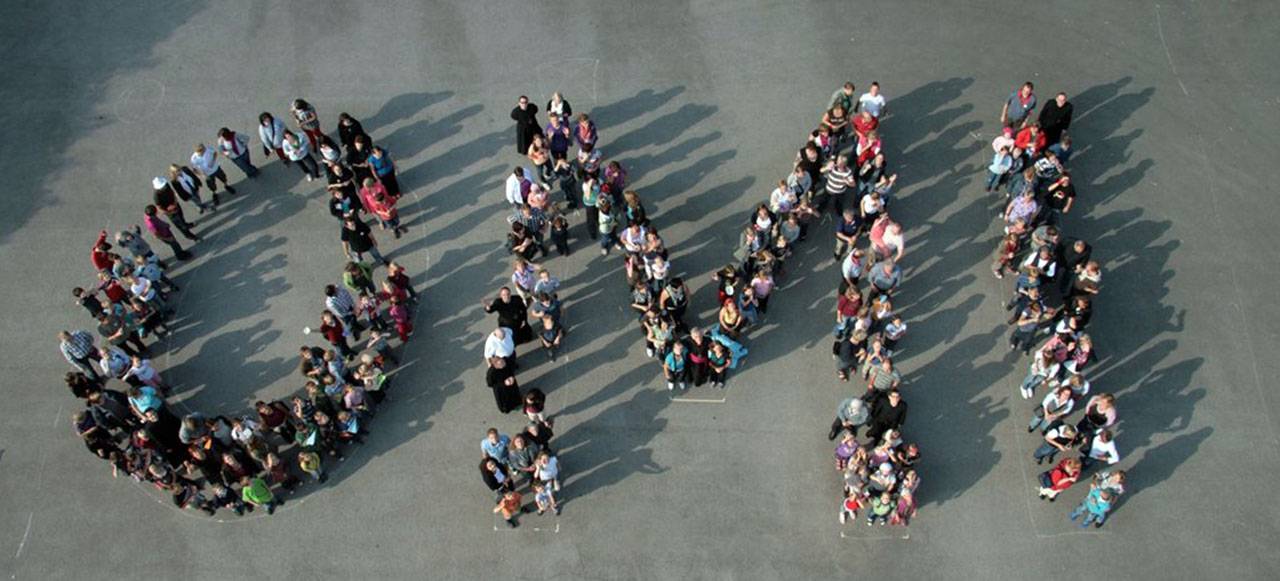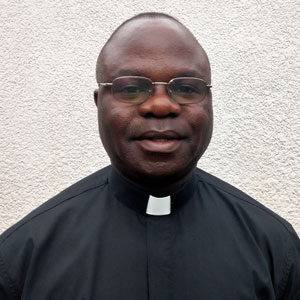Pilgrims of hope in communion: A new awareness of being an Oblate missionary
To become “pilgrims of hope in communion” is the call of our 37th General Chapter and the starting point of the whole dynamic of this General Chapter. To lead us to a new awareness of our identity and mission as Oblates in today’s world and in the context of the synodal Church: “communion, participation and mission”. We are faced with the reality of a world in which people continually experience moments of darkness, anguish and despair in the face of multiple crises that threaten their existence. Pandemics, wars, insecurity and social misery are eloquent facts of the desperation of our people in their march towards the fullness of life. Nowadays, the news coming to us from the media and different life experiences often make us look up to heaven and ask, like the psalmist: “Where will help come from?” (Ps. 121)
In this context of multiple existential challenges, the world needs a presence that restores hope, a word that reassures people in their life choices, a witness that sheds light on doubts for more convincing action and commitment. In short, our contemporaries need a pilgrim who is walking with them, a witness and bearer of hope. It is in this journey of the men and women of the world that the Oblate, as a pilgrim with his brothers and sisters, accepts to offer himself as the presence of Christ and of hope. And the OMI congregation as an institution of hope, to reassure them and bear witness to the presence of God in this journey towards full communion with Him. A missionary of hope is himself the hope of the people on the march.
This reality places us in the process of the call to synodality marked by the “epochal” changes in society and the renewal of the life of the Church. Pope Francis reminds us of this when he says that “a worldwide tragedy like the Covid-19 pandemic momentarily revived the sense that we are a global community, all in the same boat, where one person’s problems are the problems of all. Once more we realized that no one is saved alone; we can only be saved together” (Fratelli Tutti, 32). Human life is a journey, or rather a pilgrimage, to be undertaken as a team with fellow travellers whose presence gives meaning, joy and support in the search for new goals, striving towards the infinite. Walking together on the path of life is a necessity for today’s mission. And in a special way for the Oblate, it updates and strengthens the importance of his life in community (with a particularly communitarian lifestyle), the awareness of his belonging to the religious family and the Church, to remain in communion for the life and mission of the congregation.

Indeed, being on pilgrimage with others reveals one’s desire to participate in the life of the community.
Indeed, being on pilgrimage with others reveals one’s desire to participate in the life of the community, communion with the aspirations of each of the pilgrims, sharing one’s hopes with others. It is also an expression of one’s attitude to welcome and listen to the hopes of others and to carry them together; it is also the will to be part of the community in the making; it is, in fact, being in communion and living synodality. This symbolises the hope of each pilgrim in the time and space of their existence; but it also imposes on each one the need to define themselves and be aware of who they are on this common journey. The Oblate is a pilgrim of hope in communion, called to cultivate the intimacy with Christ of which he is a witness; he is invited to remain faithful to his charism and to communion with the Church, assuming in his person the pilgrimage of Christ on the path of existence of earthly humanity. Like Jesus in His life’s journey with His disciples, the Oblate defines himself as an ally of hope, walking with his anguished, afflicted and desperate brothers and sisters, experiencing the moments of darkness, the tortuous paths and tribulations that shake the hope and perseverance of the people towards the fullness of their communion with God. This, in fact, is the path of the Church, which goes on its pilgrimage “amid the persecutions of the world and the consolations of God, announcing the cross and death of the Lord until He comes (cf. 1 Cor 11:26). By the power of the risen Lord it is given strength that it might, in patience and in love, overcome its sorrows and its challenges, both within itself and from without, and that it might reveal to the world, faithfully though darkly, the mystery of its Lord until, in the end, it will be manifested in full light.” (Lumen Gentium 8).
 In this regard, the theme, “Pilgrims of Hope in Communion” defines parameters or frames of reference for the re-reading of our missionary experiences, guides our reflections with discernment, developing in us the dispositions to listen to the different cries of the poor today, in order to create new conditions for the development of an Oblate missionary identity, pilgrims of hope in communion, capable of responding with particular sensitivity to the expectations of the evangelizing mission of the Church. This dynamic calls for a discernment of the life of the Congregation and its structures for a new impetus for the Institute. This is a call for the institute to live in a prominent way the synodal style with a concrete commitment to walk together, to make choices, inspired by the Holy Spirit and the charism of the institute for the life of each Oblate and of our whole religious family.
In this regard, the theme, “Pilgrims of Hope in Communion” defines parameters or frames of reference for the re-reading of our missionary experiences, guides our reflections with discernment, developing in us the dispositions to listen to the different cries of the poor today, in order to create new conditions for the development of an Oblate missionary identity, pilgrims of hope in communion, capable of responding with particular sensitivity to the expectations of the evangelizing mission of the Church. This dynamic calls for a discernment of the life of the Congregation and its structures for a new impetus for the Institute. This is a call for the institute to live in a prominent way the synodal style with a concrete commitment to walk together, to make choices, inspired by the Holy Spirit and the charism of the institute for the life of each Oblate and of our whole religious family.
This noble work is to be accomplished in an atmosphere of prayer, fraternal charity and availability to the inspirations of the Holy Spirit, which may be contrary to our human expectations. In this sense, the General Chapter is a test of submission to God’s surprises. For it is an experience of Pentecost in which the Lord remains the only guide through the person of the capitulants for the refoundation and renewal of the charismatic identity of the Institute in the light of the challenges it has to face in its historical journey. This requires an attitude of mutual listening, of individual and community discernment, with sustained attention to all that is good and worthy for the Oblate vocation, what is true, respectable, just, pure, pleasing and honourable (Philippians 4:8). It is a process that must end with courageous decisions for the vitality of the charism and the renewal of the missionary dynamism in the following of Christ after the model of the apostles and of Saint Eugene de Mazenod.
It is up to us to dream, as Pope Francis often stimulates us, not small, personal, self-sufficient dreams, but to dream together, to dream big. “To refuse the “what’s the use?“ of those who do not want to change anything for fear of losing what they have acquired, without hearing the cry of the poor or of the earth.”[1] In a concrete way, the renewal of the Spirit is expected in the fact of having a deeper life, joyful in being consecrated to Christ and to his Church, detached from all egoism, committed to living in the sense of a community life and of co-responsibility in the mission.
This effort at renewal involves each member of the Institute, by virtue of his or her vocation and as a congregation, in offering themselves to our world and to the Church today as “good and valiant soldiers of Christ, sowers of His life among men, tireless heralds of the Word of God.”[2] We are going to live the 37th Chapter as an important and eminent event, as a great turning point in the historical evolution of the congregation. We must go there as good pilgrims and welcome it with the dispositions of faith and hope, counting on the maternal help of the Virgin Mary, our Mother, and of Saint Eugene de Mazenod, our Founder, as well as of the blessed Oblates.
By Constant Kienge Kienge, OMI
Published on the OMI World website



